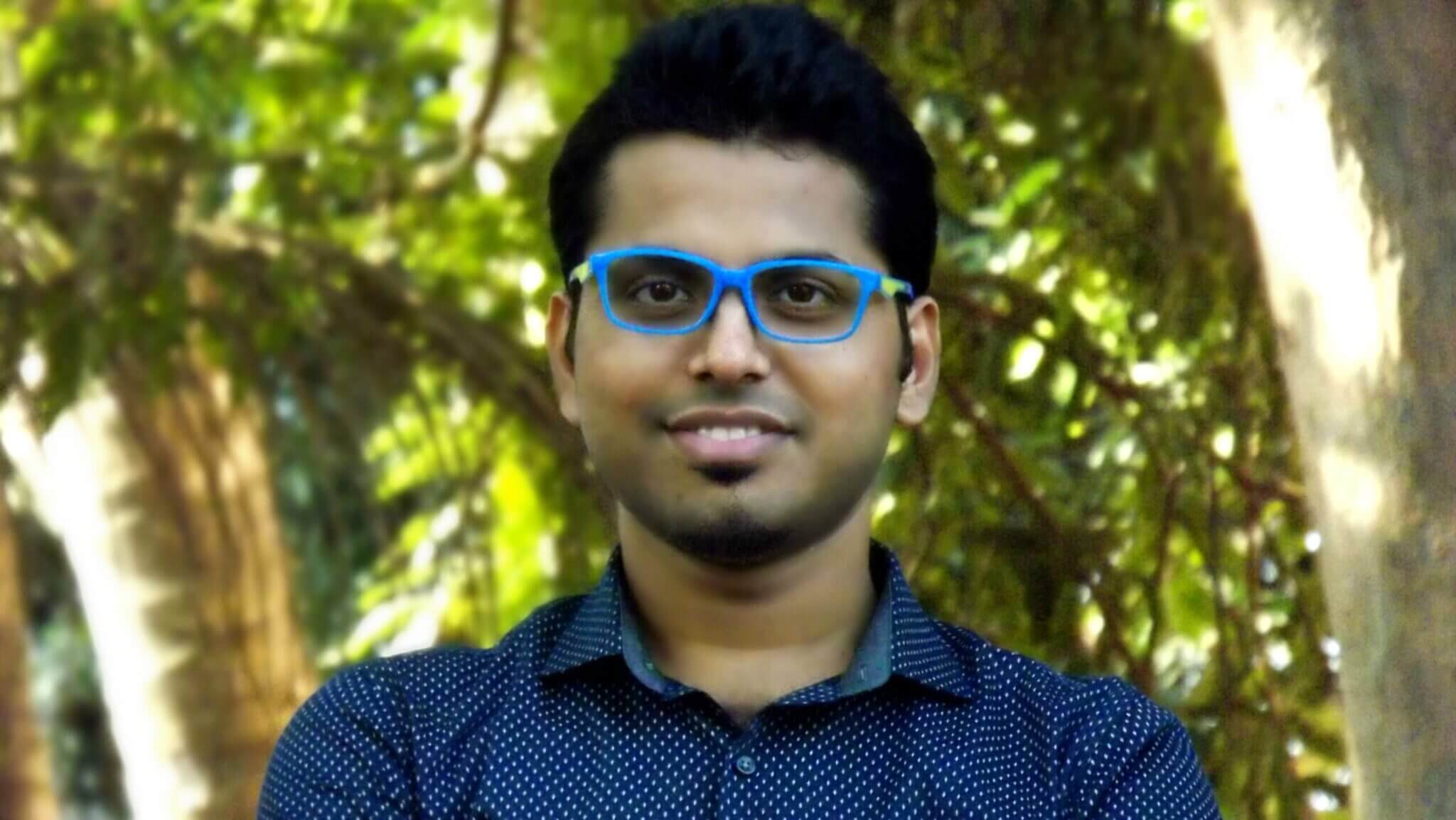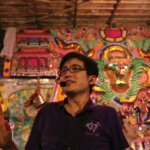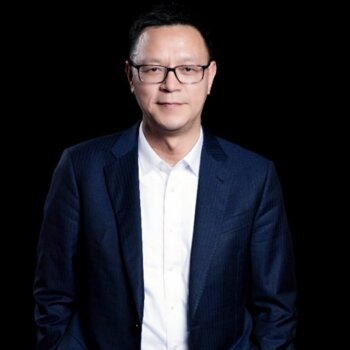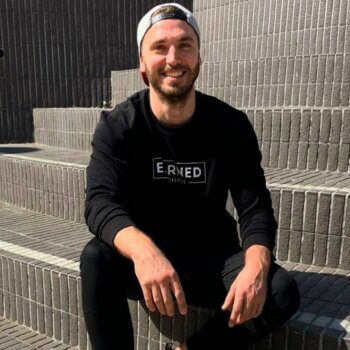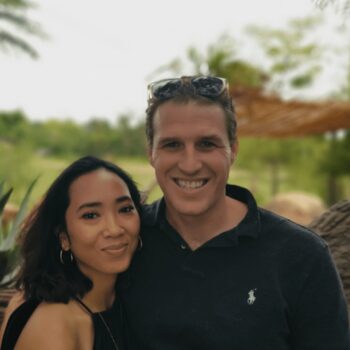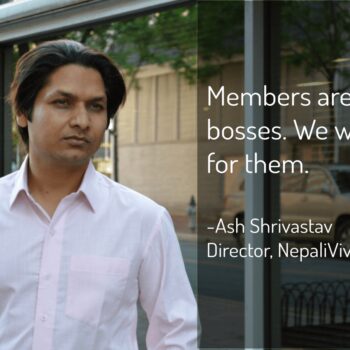Vikash Das is the founder and director of Vat Vrikshya.Prior to Vat Vrikshya , he worked as IT Security Analyst in IBM Corp. Bangalore , India. He was born into a family that was based in Odisha – The east Indian state.Hailing from a small town and growing amidst the tribal communities, he have witnessed the good and bad things that prevailed in the society.
Vikash after completing his schooling at Kendriya Vidyalaya went on to complete his Bachelor’s degree in Information Technology from the Visvesvaraiah Technological University. He pursued his masters degree in Software Engineering from Manipal University.
He always wanted to do something that empowered the people and brought world changing impact, and so he decided to quit his corporate job and founded Vat Vrikshya. This is where it all began! Many companies aim and hope to change the world one day, but it remains the fact that very few, of those few in true sense, hold all the elements (talent, resources and perseverance) that are required, to bring about that change. Vat Vrikshya empowers the people to do magical things and at the same time is making the society a better place to live in.
In your own words what is Vat Vrikshya?
Vat Vrikshya is not a concept by people who are perceived to be more educated or have more fortunate life but rather it is a collaboration between people from diverse backgrounds including those who are determined to make their lives better by becoming the change agents. It is not about privileged folks helping less privileged folks but it is about realizing that we all belong to one global community and we can help eachother to make this world a better place to live in.
How did you come up with the idea of Vat Vrikshya?
I was born and brought up in tribal pre-dominant region of India so I had the chance of interacting with lots of tribal villagers in and around my town. As I grew , I have witnessed how the tribals are neglected and ill treated by the mainstream society just because they are poor. As a kid I always wondered why God is so unfair to them and why is not he doing anything for them when he could really do something about them. Gradually I realized it’s us who could really bring in the change. I thought charity and few hours of volunteering works every week should serve my purpose.
But something really happened during my vacation in my hometown that changed my notion forever. I saw an old tribal woman holding her grandson and begging outside a temple. When she tried to enter inside the temple, she was literally abused and thrown out of the place just because she was a tribal woman so was considered impure and unclean. That was such a scandalous situation that for the first time I felt a deep sense of responsibility being the part of the same society. That also set in motion a number of questions – Why am I here, what is my purpose on this earth?
I have been so blessed and have been given so much not because I am better than most people, but because I have the opportunities to get there and a lot of people who deserve it don’t get there because they don’t have the same opportunities. And that is why I decided to start a sustainable social enterprise that could create diversified livelihood opportunities for tribal women and rather than giving them charity , make them our business partners so that they could earn and live a dignified life. I have always felt giving charity doesn’t solve problems and that is why few of the pressing problems in our world are still unresolved. What after the charity gets over?? So I thought of starting a self replenishing social good business that could generate profit and utilizing that profit to tackle one of the biggest social problems in my region. It’s like teaching people to fish than to give them fish for a day.
Could you walk us through the process of starting up Vat Vrikshya?
Three things we had in our mind- Firstly, People are poor not because they are not talented or lazy but because of the lack of opportunities. Secondly, listen to what people really want rather than imposing your ideas upon them and thirdly, there is dire need for market connectivity.
I will divide the initial process into three phases:
a) Research and Design – Our team stayed in the villages did observations, need based assessments , interviewed villagers to understand real problems and brainstormed on the solution. (This phase was a great learning experience for me because I have come to these villages earlier as well but with assumptions that they need electricity, clean water, healthcare etc. But they are basic needs of human beings. But they need simple things as cosmetics too. I did not want to presume what other people want or are willing to spend their money on. If they earn money themselves they can spend money on what they want and that increases their self esteem which isn’t the case with non-profit or charity).
b) Test and Systematize – In this phase we try out pilot projects in couple of tribes and then we iterate our models based on needs.We see our business plan as hypothesis. We test and then modify as we go. The plan that works for one tribe may not work for other tribes because of multiple factors. So the output of this phase is a complete scalable and sustainable model that should work with every tribes in India.
c) Launch and scale – Replication of sustainability model across villages and finally launching them.
Did you encounter any particular difficulties during startup?
There were endless problems . Language barrier , cultural differences , geographical isolation , societal pressure and many more. It was very hard for me to understand their language but gradually got used to it. The tribal villagers have been geographically isolated from our society and they really keep their art , culture and traditions to themselves.The women were not open enough to discuss their problems with an outsider like me.They took me as another outsider who is in their villages to exploit them. It took a great amount of time to convince them to be the part of our venture. I had to live like them in their village so that I could understand them better and be part of their culture.
The remote tribal hamlets have no road connectivities.We had to cross dense forests , mountains, rivers to reach them. People thought I have gone mad to quit my job and work for poors in one of the dangerous region, risking my life. Gradually they understood the value of value creating and now they respect my work.
How have you been developing Vat Vrikshya since startup?
We figured out that the tribal households are solely dependent on agriculture and forest products for their livelihood. But because of adverse weather conditions and outdated agriculture techniques , the farming is not productive. So we thought of providing sustainable alternate source of livelihood. We observed that tribals are usually very artistic and good handcrafts.But they keep these within themselves.So we discussed with them and brainstormed on how to make the products of higher quality , higher value and better design.They already have the raw skills , the technical skills but what needed to be addressed was the design. Designers and the market have different perception on how their products need to be and so we become the communicator between the market and the tribal communities. For instance the Soura art of Sabara tribe is incredible but they never let it flourish. They used to do soura art on their walls only on festival.They were using dyes from flowers, leaves, clay etc and brush made up of bamboo stick. We provided them colours, brushes etc and let them do the design on canvas, glass, marbles, handlooms and the results have been phenomenal. These arts are in greater demand in Indian cities and abroad.
We have women groups comprising of mentors and women from the communities. This is like school system where the women are provided business skills and at the same time are made financially literate. So we actually nurture entrepreneurship among women with no formal education.
We also have women education programmes where in we invite our partners and make tribal aware of various govt policies, subsidies. We connect them to financial institutions, banks and help them avail loans for this business. Recently we launched Saving Prog and now each of them have their own bank accounts. Now they have the capacity to save and think about their future.
We have formed community clubs and knowledge sharing centres where women from various tribes actually gather at one place and share information , expertise. Through these we actually create role models for tribal women. The women from same community who is already successful actually share her experience with these women.We talk about various social and health issues in clubs to create awareness.
Now the women are earning 2 to 3 times more than they were earning earlier.So now they don’t engage their kids in their daily activities. We encourage them to send their children to schools. We have programmes for children so that the drop out rates in school can be put in control.
We are preserving rich tribal culture which was once on verge of extinction.We engage local artisans and give them good money. We have eliminated middlemen from our supply chain. Thus now many people are not quitting their tradition and occupation and going cities in search of work. This rich tribal culture can be passed from generation to generation.
What kind of feedback did you get for Vat Vrikshya so far?
It is the vital process through which we can engage with our clients ,our partners, and our beneficiaries and continually improve what we do and how we go about things.We have clients from Europe who love our authentic tribal products that are not easily available in market. Our customers love our product not just because of the intricate design works but for the personal touch our artisans have given to these products.
Candidly speaking, I get positive feedback almost every day, when I see smiling faces and realize that they are the ripple effect of the work I have been doing and that gets me going.
People often say me that I am philanthropic and selfless and then I tell them that my decision about starting social enterprise is not selfless. I do good because I feel good about it. I get joy when I realise that I could bring smile on someone’s face because of my work. So I am doing works for inner happiness.
What is your strategy against your competition?
It’s a competitive market place, whether you’re a social enterprise or a commercial business. Things are changing, and it’s not going to get any easier. So we need to stand out from those organizations around us. So if we talk from For-profit business perspective , we do have a lots of competitors. The main competitors for VV are other design houses or agencies that market and sales designer products, home accessories, handloom products. So competition is exactly the same as normal business but behind the scene we have a team of people working on social mission.
But from social business perspective, we don’t have large number of competitors because we are working in one of the most remote and dangerous location of India.You don’t have direct connectivity to these remote hamlets and our main focus is to empower the lives of marginalized aboriginals who have been exploited by outsiders all along and to preserve the rich tribal cultural heritage ( it’s in verge of extinction) by promoting tribal products in India and abroad. Lots of NGOs but not many social enterprises are currently involved with these tribal groups.
I guess the best strategy for us has been to focus on just two things: clarity about 1) who we are and what we do 2) what our audience need.
For example when we market our products we do two things to stand out from our competitors. We narrate the story behind each and every products to attract customers and undoubtably they get fascinated by extraordinary story of each any every product. Thus the intrinsic value of products get increased and our customers make educated purchase. We interact with customers, try to identify their needs and then customize our products based on their requirements.
We address persistent poverty by empowering socially marginalized tribal groups in one of the most dangerous region of India. We do this by strengthening networks across the tribal belts which are the country’s cluster of poverty. We encourage the tribal women to take charge of their own change process.These women with no formal education are integral part of our organization. We just don’t impose our ideas upon these people but we listen to them , try to understand their problem, involve them in our decision making process and come up with innovative solutions.
Have you developed any industry insights that you could share?
Every society, every country has its own set of problems. In today’s life, your are facing critical problems both socially and environmentally, to name a few; climatic changes, global poverty, food crisis, shortage of oil and the list go on. We as youngsters can be part of that solution. The future of a country or society relies on its youngsters. The youth have the passion and energy, the strategic social positioning, and the natural tendency towards problem-solving. So youth should take up these socio-economic problems as challenges and opportunities and come up with innovative solutions, contributing directly to a social cause.
Over the last three years, I have researched to figure out that the best way I could do my part and I am informed to say the best thing I can do is to start or be the part of social enterprise. It leverages commercial principles to maximize improvement on human and environmental well being instead of maximizing profits. This is the idea of business for good.
What is the future of the industry?
The concept of social enterprise has been around for a long time, but it seems to have taken off recently. In recent years for-profit models are actually used to solve most pressing problems in the world that have been traditionally been associated with public or non-profit sectors. I believe this new direction for the private sector will be one of the drivers of emerging markets in the next decade.
The only way to stay relevant in this industry is to sustain and scale our model in long run. If we can more consistently connect with customers then we can generate profits. We need to be profitable for sustaining our org and eventually replicating and scaling our business model.I believe if one has mind and heart in his pocket, he will sustain.
Were there anything that disappointed you initially?
The biggest disappointment in the initial phase of my journey was from within in terms of self doubt, lack of self motivation. Am I doing the right thing , have I made a mistake by starting a social enterprise, what to do next etc kept me bugging but going back to purpose and revisiting mission statements helped me keep calm .
What do you think about being an entrepreneur in Asia?
We Asians are scared of failing.We have been programmed to be well qualified and then find a stable job and settle down in life. Rising through the ranks of well established companies are widely acknowledged as a sign of success than risk taking to start a new venture.
In Asia, the family is super influential in a young professional lives, social enterprise is unheard of, too risky for most of young professionals and don’t pay that well. This is a real problem when the social enterprise grows beyond its founders, it is very difficult for them to find additional staff who have enough talent.
I cannot say if it’s harder or easier but I must admit it’s been an amazing experience.Asia has it all to be uniquely brilliant and entrepreneurial.Asia has huge market , bright minds , human resource , societal problems that could be actually taken as opportunities to innovate.I see better business prospects in Asia.
What is your opinion on Asian entrepreneurship vs Western entrepreneurship?
The fear of failure is the biggest obstacle in the path of Asia’s entrepreneurs and the one thing that separates them from their U.S. peers.The price of failure in the U.S. is that you learn from your mistakes and try again. I don’t see that being the case in Asia. Failure is branded that way permanently. This mindset is holding back entrepreneurship in a region where a growing consumer class and bright economic prospects point to strong opportunities for risk-takers.
We in Asia contribute 60 percent of the world’s poor. Entrepreneurship and social entrepreneurship, besides education, are some of the keys to restore dignity, alleviate poverty and create employment. Therefore, social entrepreneurs in Asia are faced with one of the widest spectrums of unmet people needs and the correspondingly open range of entrepreneurial possibilities.
What is your definition of success?
For me success is not becoming like someone else rather becoming person one is meant to be.
Why did you decide to become an entrepreneur?
I realized that professional success doesn’t necessarily lead to happiness or fulfillment. This has been a huge realization. Like many people, I was programmed early in life to achieve. I had a dream job, owned high tech gadgets , expensive fancy apartment and had all the luxuries a 26 year old could possibly imagine. But after witnessing the plight of tribal in my region I asked myself the fundamental questions of my life – ” Why am I here?” and “How will I measure my life?” I am not successful in true sense if vast majority of my country lives below poverty line . Rather than sitting all day long in the office, making an MNC richer, I wanted to do something meaningful in my life.Why a human being would kill another human being , or why a mother would sell her baby for money.It’s because of lack of opportunities in these remote region.
And that’s one of the reason we have insurgency in these tribal region- the Naxalism. I believe these kinds of problems are arising because the tribal people are unable to lead their life.Everyone has their own definition of life and when one don’t gets opportunities , he/she gets agitated and use his frustration to mobilize against somebody.If tribals want to lead a harmonious lives in forest so be it.Let them have the opportunity and live happily.
These Adivasis have lost their land and livelihood. They are physically isolated from mainstream society and have no access to markets to sell their products. Tribal children are malnourished and have no access to education. So after working for four years, I decided to quit my job and work for these marginalized groups. I had no concrete plans but I was confident of making a difference in the life of these tribal people. Now I may not be earning more as I used to before starting our org, but I am happy and satisfied that I am able to bring meaningful changes in lives of thousand others.
Now you may ask me if am so passionate about helping people then why not start an NGO.I don’t believe in the term charity because giving charity won’t serve the purpose and would either make people lazy or demean their self esteem. So why no involve them in our business and make them partners. Now we can proudly say we are entrepreneurs and we create entrepreneurs.
In your opinion, what are the keys to entrepreneurial success?
1) Take risks – Life is too short to spend your time avoiding failure.
2)Make your own luck – Luck plays a part in success , but the harder you work , the luckier you get.
3) Be Persistent – Persistent really does pay off
4)Never stop learning – Learning is a never ending process.
5)Give back – You are ultimately responsible for your success and failure,but you only succeed if you share the reward with others. At the end of the day ask yourself -“Am i making difference in the lives of others?”
Any parting words of wisdom for entrepreneurs out there from your personal experience?
Be very focused on your organization stake holders. Be very clear on what you are trying to do for them. Keep your mind open to new ideas. Never be an island because island never grows. Trust your instincts because you will know your business and market than any one else. Having that self confidence is really important.
